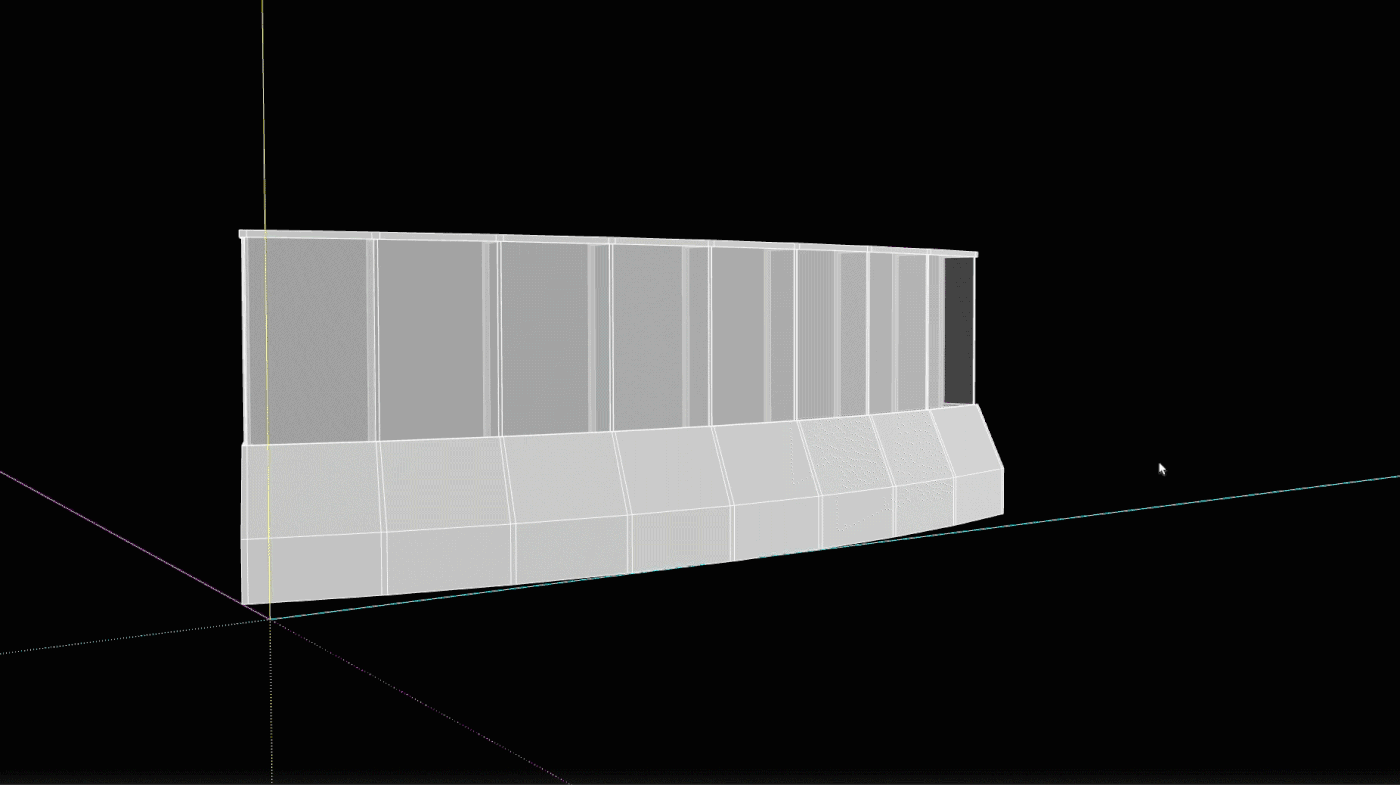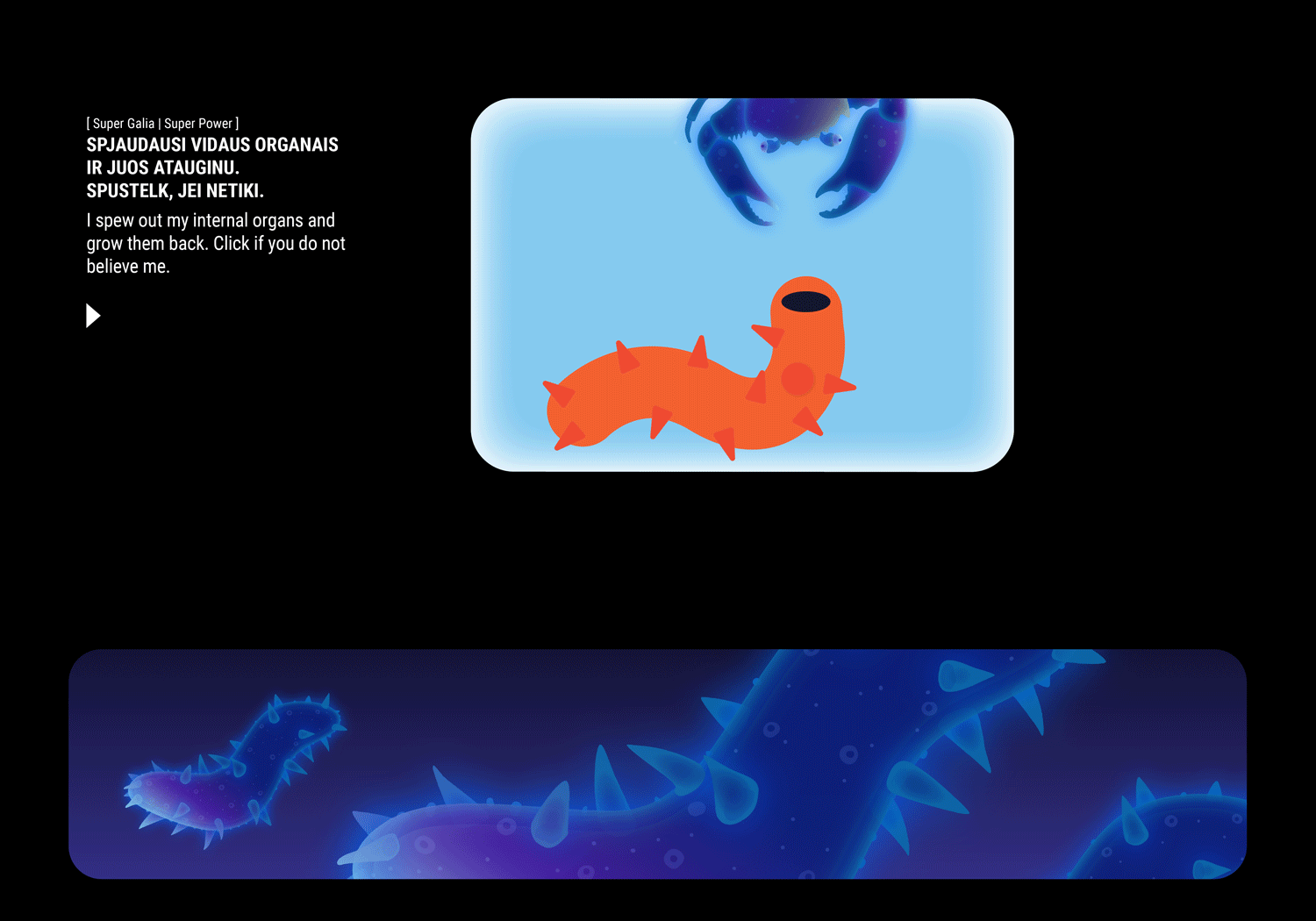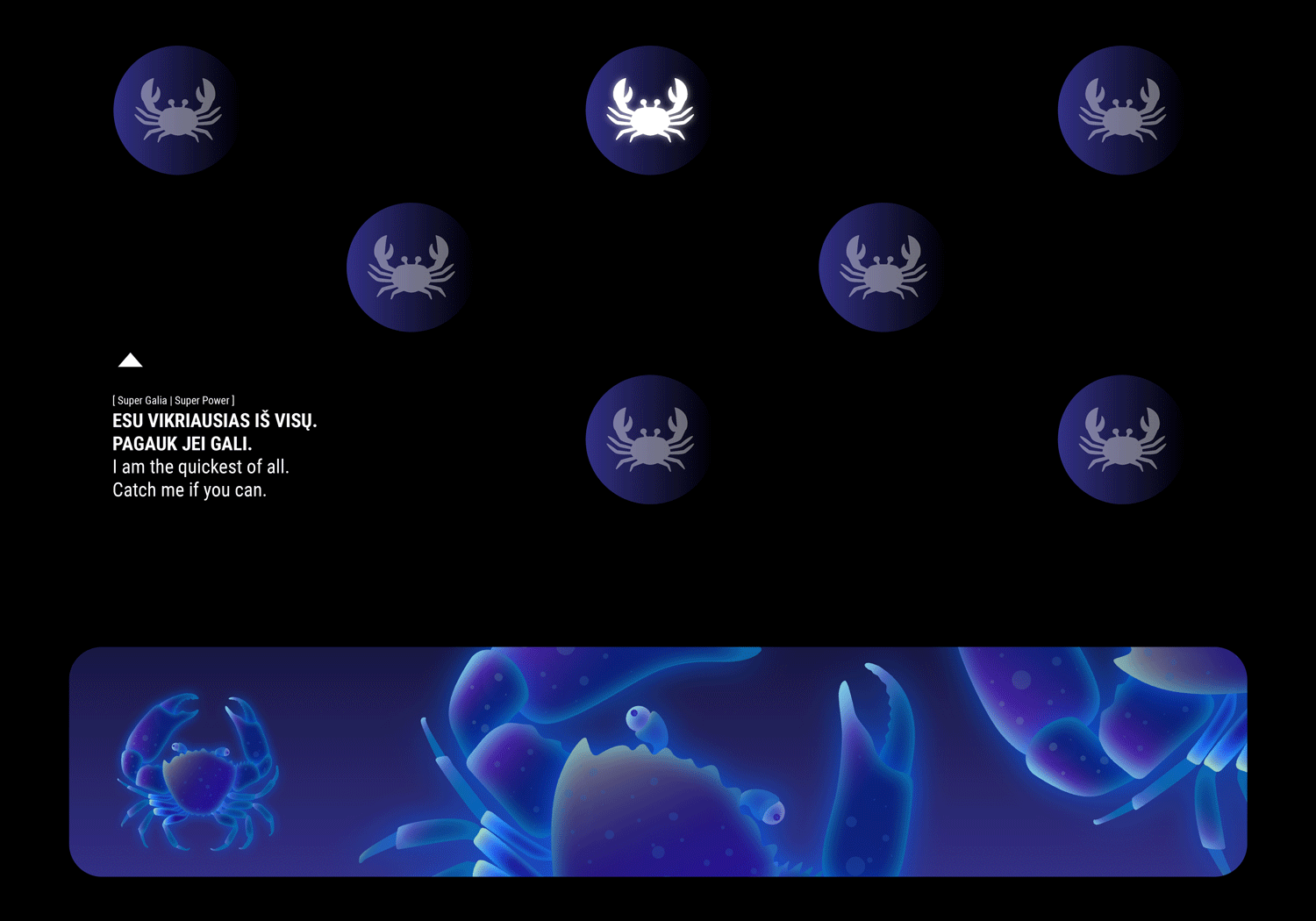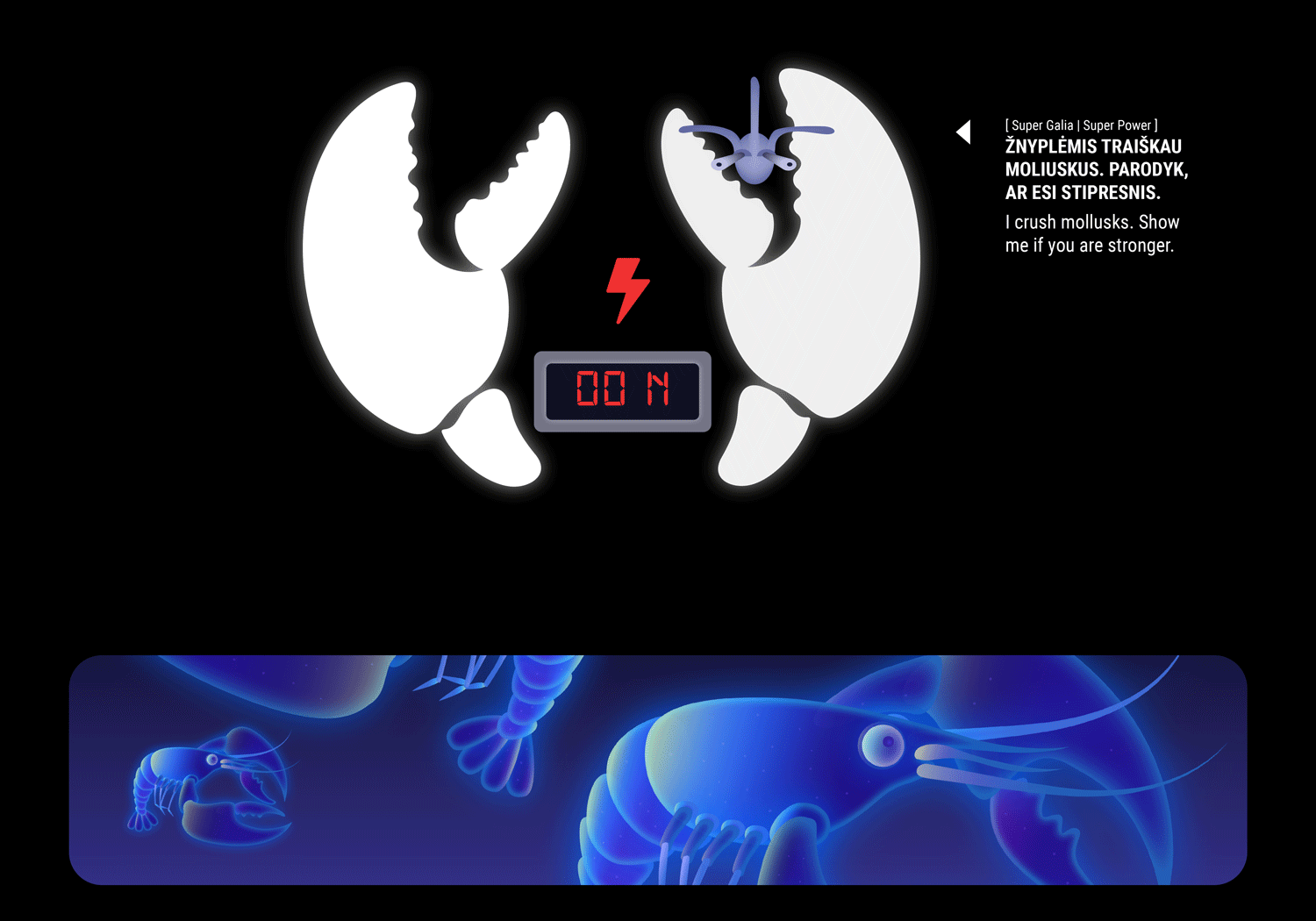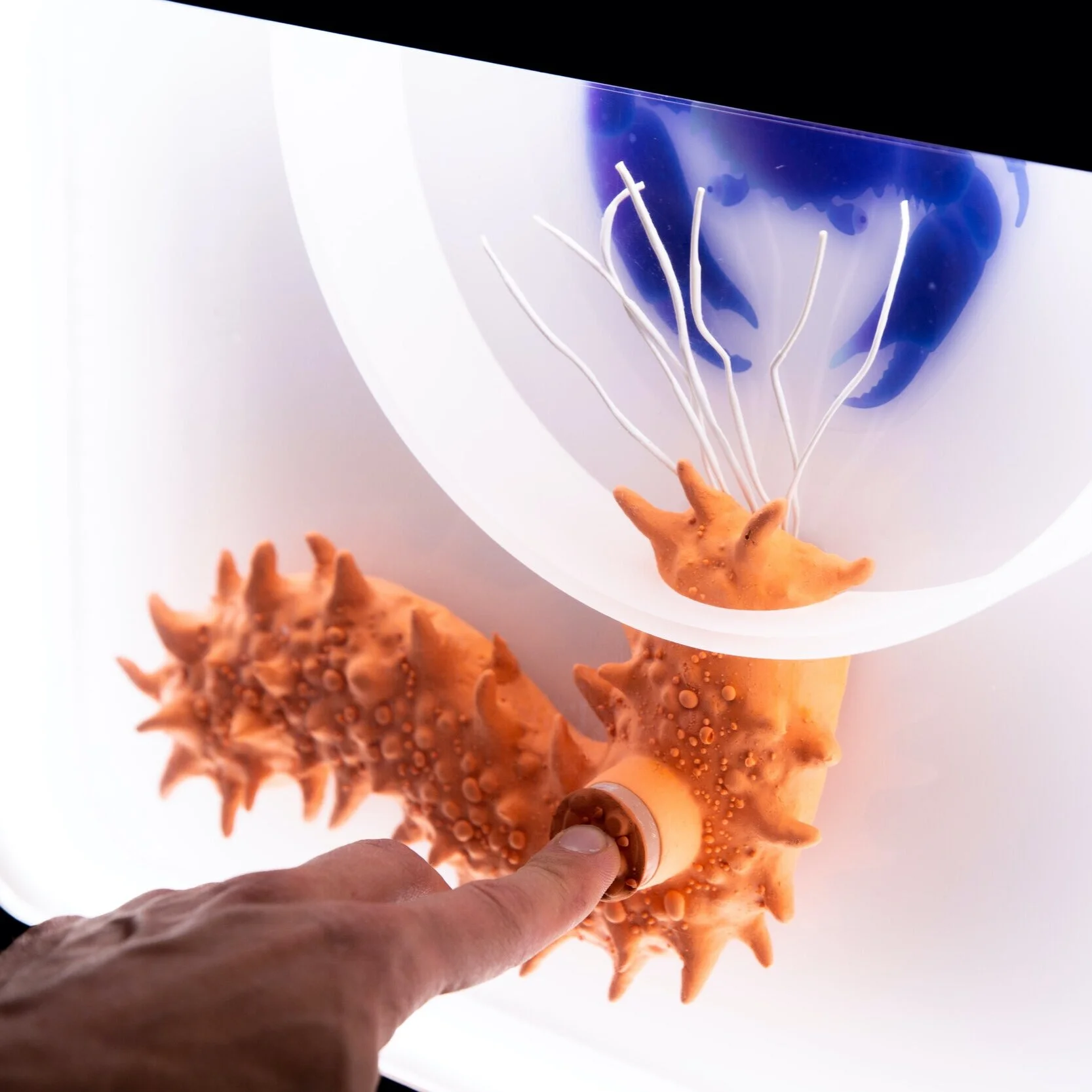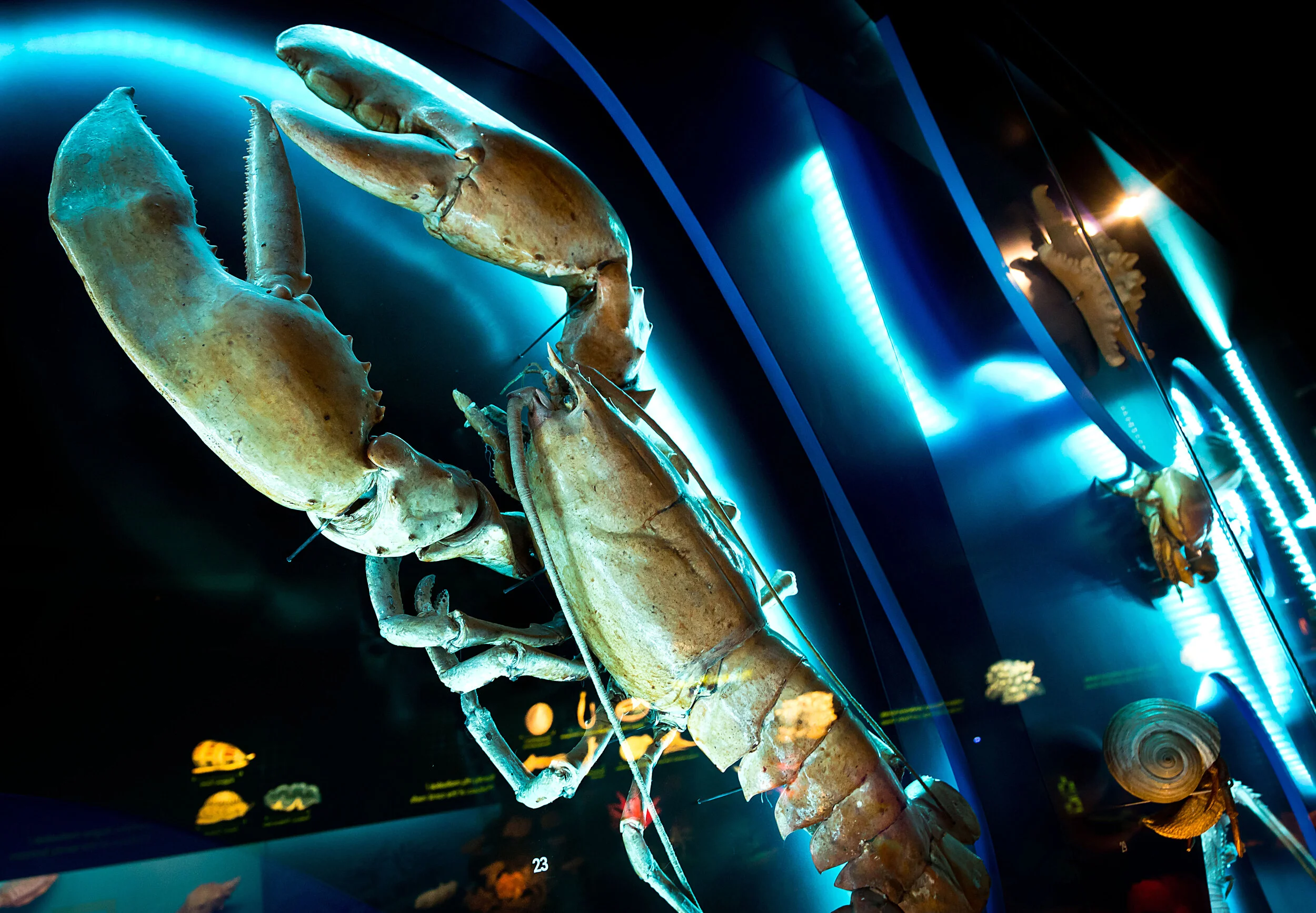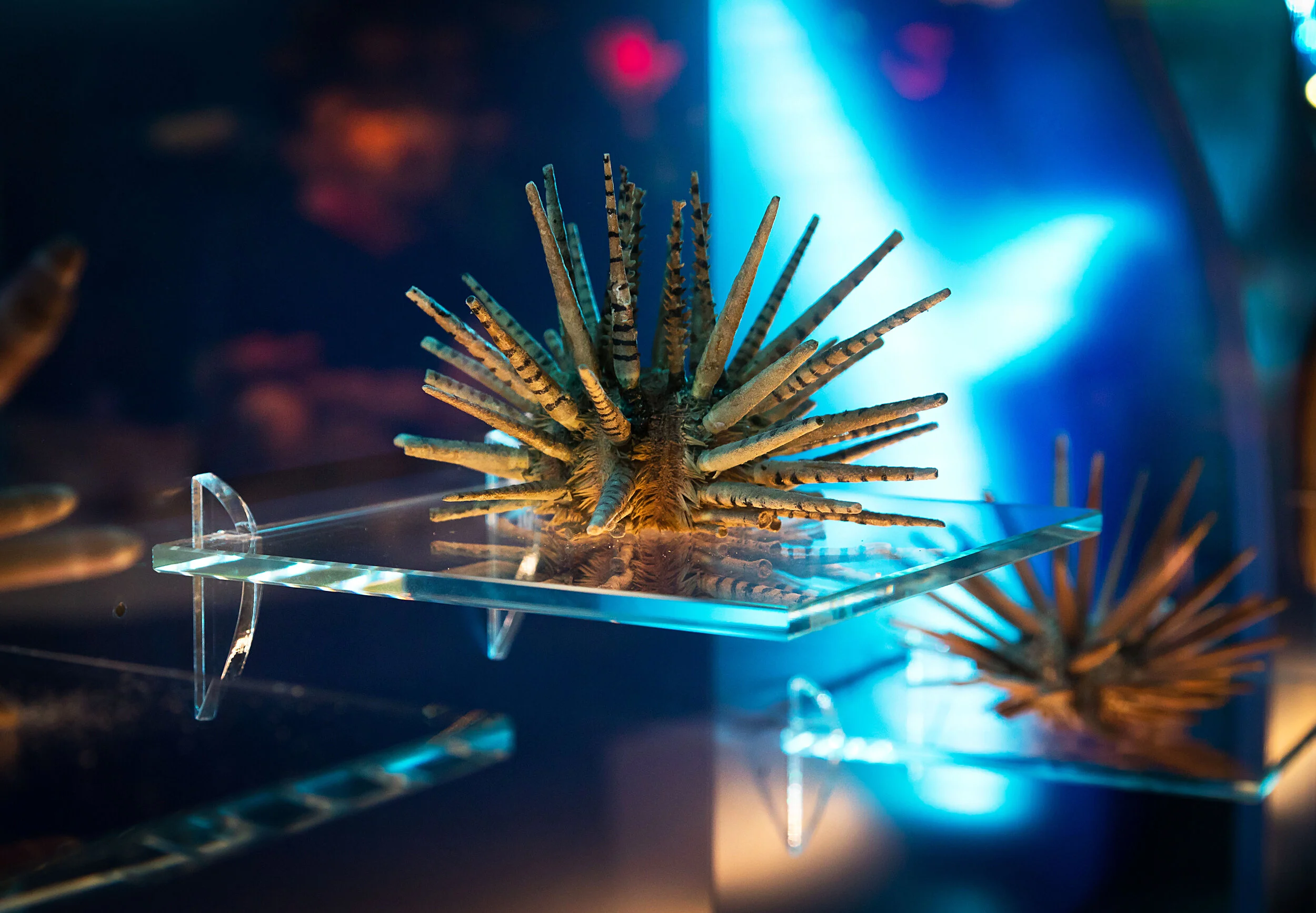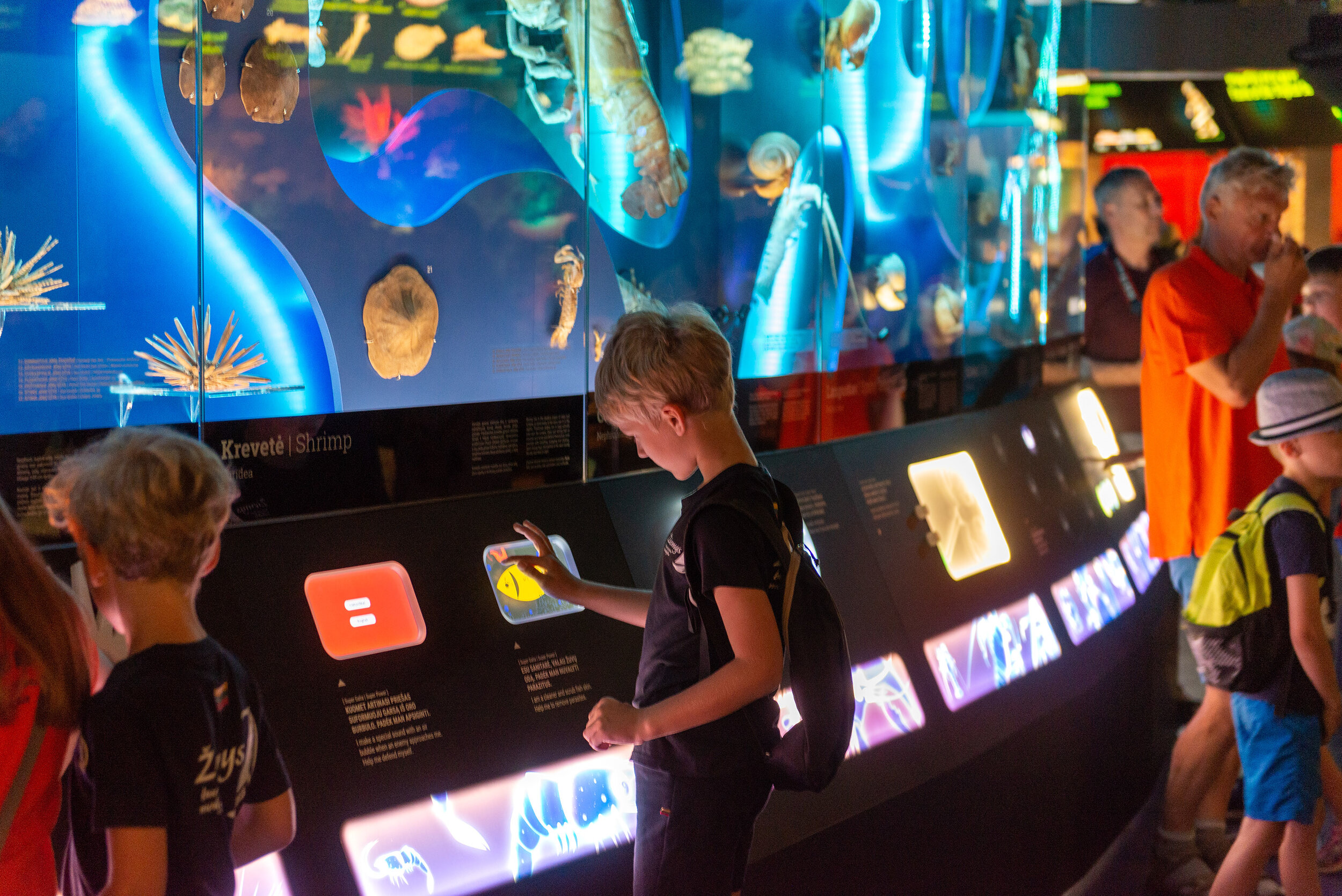
Sea Creatures & Their Superpowers
CLIENT
Lithuanian Sea Museum
BRIEF
The Lithuanian Sea Museum is one of the most popular museums in the country each year attracting about 700 000 visitors from Lithuania and other foreign countries. Each year museum’s inner expositions are renewed - the aim is to continuously introduce the visitors with the Sea life, educate them about ecology and preservation of endangered species.
CONCEPT
DADADA Studio together with an architect Donatas Laucius has created a concept about the super powers of crustaceans and echinoderms, and, together with production partners, has established it. The aim of the interactive exposition is to help visitors discover the special powers of the species and learn facts about how they adapt and survive in their environment. Unique graphic illustrations have been created to strengthen the mystical and futuristic approach of the visual part of the exposition concept.
Construction
In collaboration with an architect we have created a unique construction that adapts to the non-traditional architecture of the building. The space devoted to the exposition is situated next to a curved wall. This factor became our main challenge – how to bow metal and wood constructions and not lose the esthetic feel and impressive appearance that was specially designed for the aquarium imitation.
Lithuania Sea Museum has a rich collection of exhibits. Therefore, one of the main focus of the new exposition is a special demonstration of the preserved exhibits and a styled seabed. We had to take into consideration the fact that all the exhibits are very fragile. As a result, we have created a sealed aquarium where the crustaceans and echinoderms are laid out among the styled plates imitating the seabed. The appearance of the exhibits is enhanced by light effects which grant the characters more power and strengthen the story telling about their super powers.
Interactions
Most of museum’s visitors are children. Therefore, when creating this exposition, we first were observing children and how they touch things, what drags their attention, what message they are able to memorize after touching objects and accomplishing small tasks. The axis of the exposition is the visual harmony between the exhibits portrayed in a stylized sea bottom and the interactive stops that drive the feeling of unexpectedness.






